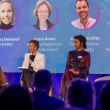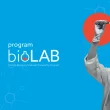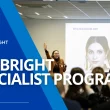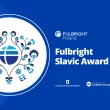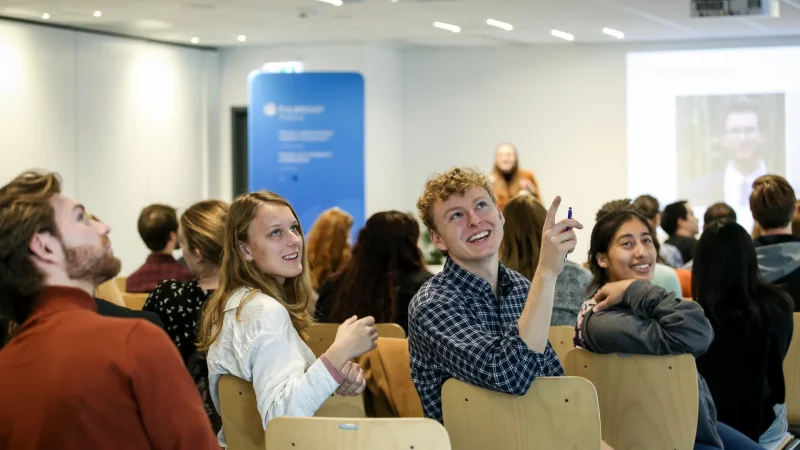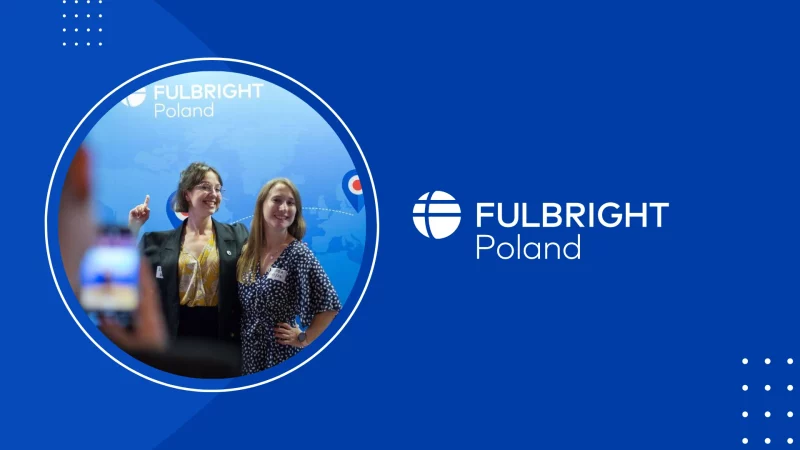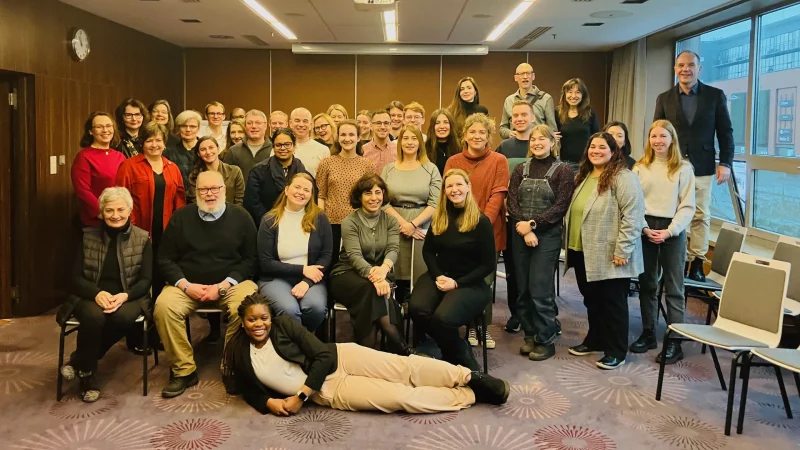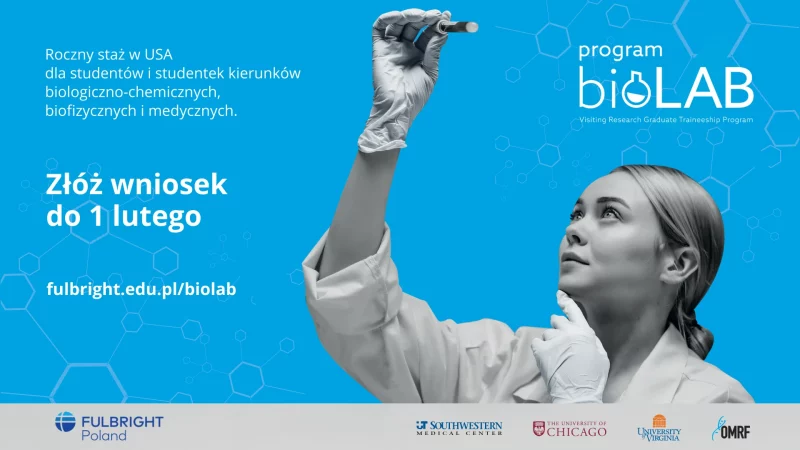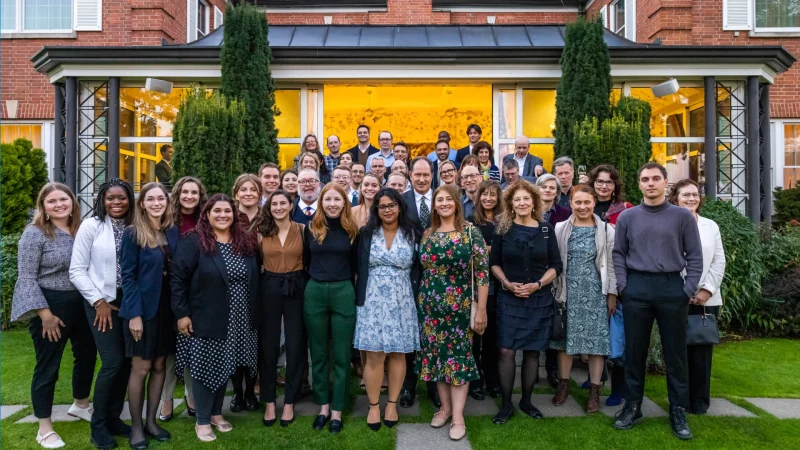During the last weekend of October we had the pleasure to host in Warsaw a group of 43 Fulbright English Teaching Assistants (ETA) based in Central-Eastern Europe for the Media Literacy Seminar 2022. The English Teaching Assistants arrived from 7 countries (Czech Republic, Hungary, Poland, Slovakia, Estonia, Latvia and Lithuania) to acquire new skills and knowledge in media literacy, as well as to reflect on their digital security and digital wellbeing.
The two-day event was also an opportunity for ETAs to network with their peers and experts.
The first day began with opening remarks by Zach Przystup, Program Officer, Fulbright Europe/Eurasia, Bureau of Educational and Cultural Affairs, US Department of State.
The first session was largely devoted to understanding the scope of media literacy and news literacy: Alexa Volland from The News Literacy Project has given an overview of the misinformation landscape. In this intensive and very up-to-date session, Alexa discussed the standards of quality journalism, the types of information, and presented a whole range of examples of mis- and disinformation together with a variety of useful tools/techniques needed to improve fact checking and verification.
Alexa’s second session focused on conspiracy theories and revolved around questions, such as: Where do conspiracy theories come from? Why are some people compelled to believe in them? And how would one talk to people who have controversial opinions?
Both of Alexa’s sessions were incredibly useful and relevant to what is happening in the world today. I am looking forward to using the examples, definitions, and activities in the classroom soon.
– from evaluation form
After lunch, the group participated in a brief session led by Taylor Esposito – a second-year ETA grantee from Estonia. Taylor gave an energizing presentation, sharing her experience with introducing media literacy topics in the classroom. She showed some examples and tips for small ways in which each ETA can bring media literacy into their teaching practice.
I thought the suggestions about how to address certain controversial media topics using US examples was the most helpful. I will definitely use this idea in the classroom!
– from evaluation form
On Saturday afternoon and Sunday morning, ETAs took turns in joining two workshops – one devoted to digital wellbeing, led by Anna Kuliberda, and another one to personal digital safety, led by Michał “czesiek” Czyżewski. The first workshop focused on mindful information consumption, smartphone usage and staying online, and the second one talked about encrypted messengers, secure browsing, picking your security strategy, and choosing software.
[What changed after the workshop] Being more aware when consuming information about the sources they come from, thinking about digital well-being in a new way, ways to educate my students on media literacy (either directly or indirectly)
– from evaluation form
The first day ended with a Halloween-themed dinner – a perfect time to have some fun and express one’s creativity in preparing a Halloween costume (best costumes received a prize!)
Sunday before lunch was the time to explore and understand the regional character of the media sphere in Europe. Presentation given by Polish reporter Agnieszka Lichnerowicz included patterns of both media creation and media consumption in countries of Central and Eastern Europe.
Participants left Warsaw with a solid dose of knowledge that will help them integrate new topics into their English classes.
I leave feeling reinvigorated for my ETA year and less alone than I felt before physically meeting the other people out there having a similar experience to me.
– from evaluation form
I am more aware of how to talk about these topics with my students.
– from evaluation form
Click on the photo gallery below to see more pictures from the event.


